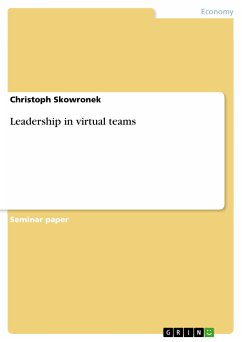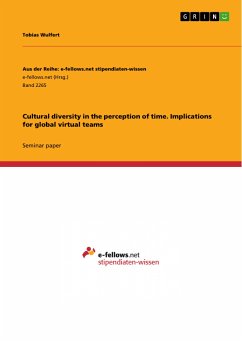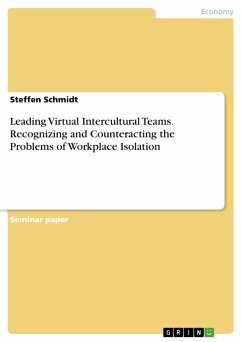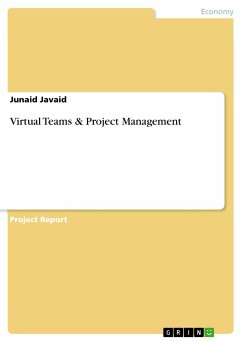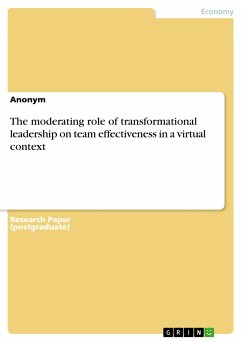Seminar paper from the year 2013 in the subject Business economics - Business Management, Corporate Governance, grade: 1, Donau-Universität Krems (Fakultät für Wirtschaft und Globalisierung), language: English, abstract: The aim of this seminar paper is to show potentials and problem areas of virtual teamwork and to analyse aspects of the changed leadership and leadership function. The focus of this paper is on teamwork in a virtual context, which is also the object of study. The procedure consists of a literature analysis with two sub-aspects. The first part is dedicated to the team, the second to the leadership of such teams. In the first theoretical section, the causes of virtual teamwork and team building are discussed and the concept of team is defined. A distinction is made from conventional teams. In the following descriptive section, the challenges and problem areas as well as potentials of virtual cooperation in teams are highlighted. Reference is made to team development and the life cycle in order to reflect on the problems of the team building process. Phases and tasks of management are pointed out and serve for the second theoretical section. This section refers to the implication of personnel management and strategic models for the management of virtual teams. Basic goals and forms of leadership are discussed. Determinants and fields of action of performance behaviour are described. A brief overview of the basic leadership theories, leadership styles and leadership instruments will enable the changed focus on virtual teams and the changed leadership. From this, task-related strategies of leadership are derived, which are then considered as control theory models. A final conclusion enables a holistic approach with regard to successful leadership in virtual teams and summarises the most important aspects in order to be able to provide possibilities and perspectives for the changed management task.
Dieser Download kann aus rechtlichen Gründen nur mit Rechnungsadresse in A, B, BG, CY, CZ, D, DK, EW, E, FIN, F, GR, HR, H, IRL, I, LT, L, LR, M, NL, PL, P, R, S, SLO, SK ausgeliefert werden.

